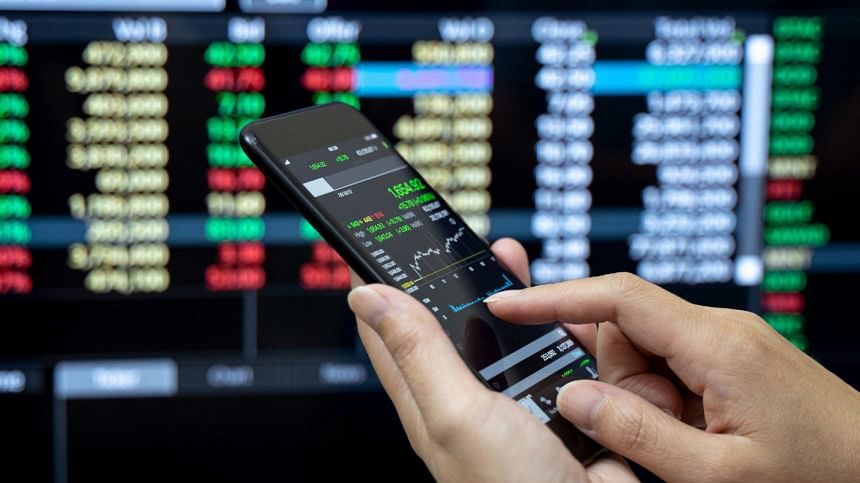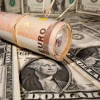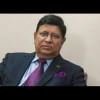Lessons learned from disruptions caused by Covid-19, war

The business sector in Bangladesh has been going through severe challenges for the past four years, which, for many, have been the toughest period in decades, with the coronavirus pandemic being the dominant factor in the early part before the Russia-Ukraine war broke out. Today, we are running the last report of a series and it focuses on the lessons for the businesses from the two unprecedented shocks.
The coronavirus pandemic, which hit the world in March 2020, was unprecedented and it has impacted almost every individual and each firm on Earth. Businesses in Bangladesh were not spared.
The Russia-Ukraine war that erupted in February last year compounded the suffering for both people and businesses, hurting the recovery from the pandemic as inflation surged to a record high amid a spike in commodity prices globally and the depletion of the foreign currency reserves and a significant fall of the taka's value against the US dollar at home.
But the twin shocks also offered some important lessons for entrepreneurs.
Embracing currency hedging, including essential items in the product mix, boosting brand value, and avoiding a profiteering mentality are among the lessons firms can learn in order to prepare for the next crisis
Embracing currency hedging, including essential items in the product mix, boosting brand value, and avoiding a profiteering mentality are among the lessons firms can learn in order to prepare for the next crisis, according to a number of experts and entrepreneurs.
"Most of the suffering for the business sector came from the dollar shortage induced by the war, so entrepreneurs need to go for currency hedging to safeguard themselves from the volatility in the currency market," said Mir Ariful Islam, chief executive officer of Prime Finance Asset Management Company.
Under the currency hedging, a company makes a forward agreement with an investment dealer to sell a specific amount of a particular currency on a future date but at today's exchange rate. This forward agreement is carried out through an exchange-traded fund, a type of investment.
Since the Bangladesh Bank indirectly controls the exchange rate to ensure stability in the foreign exchange regime, companies did not feel the need to go for hedging. As a result, many companies have had to absorb a huge loss when the central bank suddenly allowed a sharp depreciation of the local currency against the greenback to protect the reserves last year.
The time has come to go for hedging in order to avoid volatility as the central bank is thinking of a market-based exchange rate in line with the conditions of the International Monetary Fund attached with its $4.7 billion loan programme, according to Islam.
It is expected that the exchange rate will move toward a unified rate (within a 2 per cent variation) within this fiscal year and a flexible exchange rate system for all international transactions bringing stability to the BDT-USD exchange rate, said the central bank in January.
Generally, renowned companies do currency hedging globally to avoid currency risk. On the other hand, most companies in Bangladesh are reluctant to spend money for hedging as the central bank has ensured a stable forex market.
Now, many companies are already mulling for hedging but they would only go for it once they receive a clear indication from the central bank about a floating exchange rate.
"So, the BB should give a clear idea about its strategy about the forex market," Islam said.
Humayun Rashid, an executive committee member of the Bangladesh Association of Publicly Listed Companies, says local companies had not seen such currency risk and shocks in the past. "So, we didn't think about it."
"We are not in a position to face any more currency-related shocks. So, entrepreneurs are already thinking about going for currency hedging in the case of long-term financing."
Currency hedging involves costs, but Mehdi Zaman, a deputy managing director and head of treasury at Eastern Bank, thinks entrepreneurs should still go for it as any sudden currency volatility may devastate their business.
The private sector does not embrace currency hedging since it would raise the cost of funds and thus the price of products compared to those firms who do not hedge, he explained.
"Here, a policy is necessary. If the central bank compels commodity importers to go for hedging gradually, then the cost would not be a big concern and importers will also be accustomed to it."
Zaman thinks that people should realise that the upcoming years would not be the same as in the past.
"Currency volatility can be a common phenomenon in the coming years globally amid higher interest rates and liquidity stress."
Along with commodity hedging, Zaman recommended hedging for interest rates as many businesses borrow from abroad and they absorb losses when rates go up.
Rashid, also the managing director of Energypac Power Generation, suggests banks offer the product as the currency rate would be unpredictable and market-based.
Syed Alamgir, CEO of Meghna Group of Industries, thinks the twin shocks have brought about important lessons for entrepreneurs.
"As the pandemic was unprecedented, it was tough to avoid its impacts. But we have seen that the companies that have essential commodities in their product mix faced comparatively less stress than those that don't sell basic items."
Companies with strong brand value and consumer base were also able to deal the crisis, he said.
"So, entrepreneurs should focus on creating a strong consumer base so that it can survive in any circumstances."
Another lesson for businesses, according to the marketing expert, is that companies should not aimed for making a profit in any peril.
"Rather, they should target how to stay afloat and support customers. If they can do it, it will give them a big mileage in retaining trust."

 For all latest news, follow The Daily Star's Google News channel.
For all latest news, follow The Daily Star's Google News channel. 








Comments